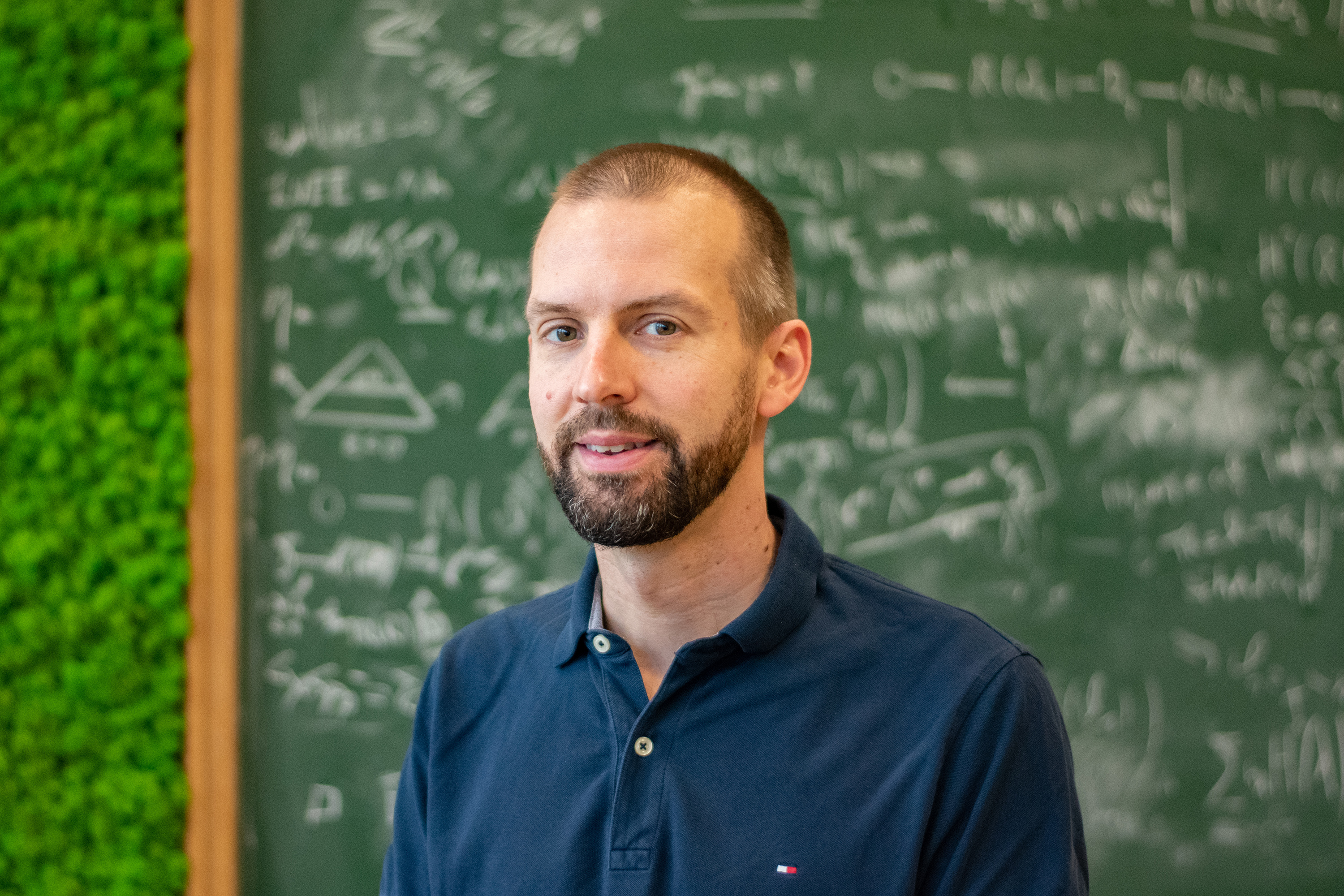Von Kaven Award Goes to Thomas Nikolaus
Professor Dr. Thomas Nikolaus
© Mathematik Münster / Victoria Liesche
Mathematician Professor Dr. Thomas Nikolaus from Münster is the recipient of this year’s von Kaven Award, conferred by the Deutsche Forschungsgemeinschaft (DFG, German Research Foundation) in recognition of outstanding research achievements. Endowed with €10,000, this year’s award will be presented on 6 December in connection with the Gauss Lectureship of the German Mathematical Society (Deutsche Mathematiker-Vereinigung, DMV) in Erlangen. The laudatory speech is to be given by Professor Dr. Katrin Tent, a scientific member of the DFG Senate.
Thomas Nikolaus’ research focuses on homotopy theory and K-theory, at the interface between topology and algebra. Topology is concerned with the qualitative properties of geometric objects such as surfaces. These properties have nothing to do with sizes and angles, but with shape or arrangement – in other words they are properties that are invariant under continuous deformation of these objects. In Nikolaus’ field of work, the geometric objects under investigation also have an algebraic structure; points can be added or multiplied on them, for example.
“By combining these concepts and drawing on the modern and sophisticated language of higher category theory, we can solve longstanding problems that were previously thought to be unsolvable,” says Thomas Nikolaus. In collaboration with fellow mathematician Peter Scholze, for example, he has fundamentally revolutionised the theory of topological cyclic homology, as well as making significant advances in the theory of quadratic forms over very general rings. In one of his most recent papers, co-authored by Benjamin Antieau and Achim Krause, he succeeded in calculating the algebraic K-groups of finite rings Z/n. His research enjoys a high level of international visibility, as reflected in the fact that he was invited to speak at the International Congress of Mathematicians in 2022, for example.
After obtaining a degree in mathematics, Thomas Nikolaus received his doctorate in 2011 from the University of Hamburg with a focus on mathematical physics. This was followed by research at the universities of Regensburg and Bonn before a move to the Max Planck Institute for Mathematics, where he led an independent junior research group from 2016 to 2018. In 2018 he accepted an appointment to a professorship in theoretical mathematics at the University of Münster. Since February of this year, he has been one of the spokespersons of the Cluster of Excellence “Mathematics Münster: Dynamics – Geometry – Structure”.
